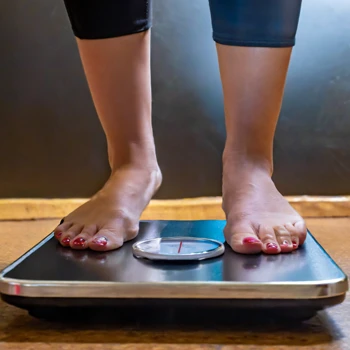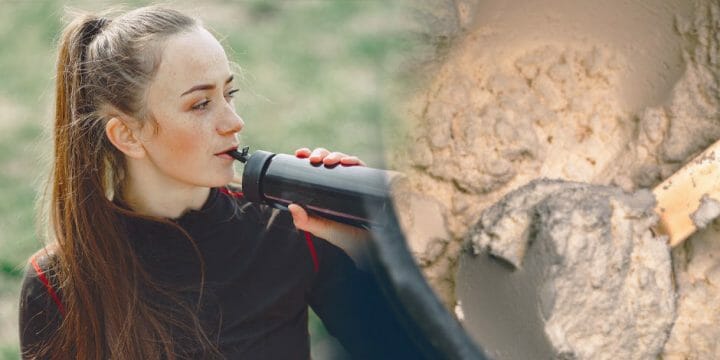What significant changes does your body go through when you stop using creatine supplements?
As a medical doctor, I put myself to work and did some research on what happens when you decide to stop taking creatine supplementation.
If you are considering to discontinue using the supplement, read on and discover how it would impact your metabolism. The results may surprise you.
Quick Summary
- Stopping creatine supplementation can lead to fatigue, muscle weakness, water weight loss, decreased natural creatine production, potential muscle mass loss, and temporary mental fatigue.
- Creatine not only benefits muscles but also plays a role in brain health, potentially enhancing cognitive functions, especially during sleep deprivation or mental fatigue.
- Many people report feeling less mentally sharp after discontinuing creatine, since creatine aids short-term memory and reasoning according to a study from the National Library of Medicine.
- Personally, considering the potential side effects, it's wise to taper off creatine gradually rather than stopping abruptly.
What Are The Side Effects Of Stopping Creatine Use?
Some people don’t realize that your body may have adverse reactions to not taking creatine supplements anymore.
Here are some commonly reported side effects after stopping creatine supplementation.
1. Fatigue

Feeling tired after stopping creatine? Makes sense. Creatine boosts ATP energy for your muscles, usually about 5 grams daily, compared to the 1-2 grams your body makes naturally.
When you stop, that ATP energy dips, leading to fatigue. This might make strength training or other exercises tougher.
Expect a few weeks before you feel back to normal.
2. Muscle Weakness
Along with fatigue, you will notice that decreased creatine production causes you to struggle with your exercise, especially strength training. It may be harder to lift a heavier weight or do as many reps.
Because your body is creating less ATP energy, then your body responds by becoming more tired faster. Your muscles may not be able to keep up with what you were doing while taking creatine supplementation.
3. Water Weight Loss

I know a few people who tend to freak out when they lose water weight after stopping taking creatine supplementation. They fear that it’s their hard-earned muscle gain going away.
It’s not muscle weight they are losing, but water weight. (Although later I’ll discuss how you could end up losing lean muscle mass when you stop taking creatine).
Creatine is known for retaining water in your muscles. If you’re looking to make your muscles look bigger, then water weight retention can help with that goal. This is why you should increase your water intake when taking creatine.
4. Decreased Creatine Production
Your body makes 1-2 grams of creatine daily for muscle energy. If you've been using creatine supplements for a while, your body gets used to the extra help.
Once you stop, your natural creatine production won't bounce back right away. It's adjusted to the supplement, causing a dip in production.
But don't worry, your body will get back to normal soon, and there's no evidence of long-term harm or withdrawal from stopping creatine.
5. Loss Of Muscle Mass

Creatine supplementation doesn't directly give you muscles but provides ATP energy to exercise harder, giving you more muscle growth.
You'll notice a drop in energy levels and muscle weakness when you're stopping creatine intake. It could lead to not putting in as much effort in your strength training.
The lack of proper strength training is what causes muscle loss, and not necessarily the absence of creatine levels itself.
If you’re disciplined enough, then you can easily avoid losing your muscle.
6. Creatine Withdrawal
Don't mistake "creatine monohydrate withdrawal" for something harmful. While most creatine is in muscles, your brain also stores it, aiding short-term memory and reasoning, according to the National Library of Medicine [1].
After stopping creatine supplements, your brain needs time to adjust to its natural creatine levels. You might feel mentally fatigued during this period, but it's temporary, usually resolving in a few weeks as natural production resumes.
Know more about what will happen by watching this video.

Should You Stop Taking Creatine?
Creatine is one of the safest supplements on the market despite the side effects like muscle weakness. It’s proven to be safe for short and long-term use [2].
You may consider stopping creatine if you are no longer looking for the benefits of creatine monohydrate, like bigger-looking muscles or more power for your workouts.
You can consider taking pre-workouts without creatine in case you do decide to stop and stabilize your creatine levels.
Here are some of the best alternatives to creatine.
Related articles:
- Does Creatine Expire
- Should You Take Creatine Before Bed
- Creatine vs Beta-Alanine: What's the Difference
- Does Creatine Affect Drug Test Results
Do I Need To Cycle Creatine?

Yes, you might want to consider cycling creatine occasionally. One popular recommendation is to take creatine for 12 weeks and then stop for a month to normalize creatine levels.
The idea is that it will help your body not be dependent on a supplement and restore natural creatine production. It’s not an entirely necessary practice. Your body will adjust to the creatine levels, no matter how long you are taking a supplement.
Another common idea I hear is that you need to introduce creatine in a loading phase. It doesn’t increase your chances of building muscle, but it also doesn’t hurt them either.
For more details, check out our article on whether you should cycle creatine or not.
FAQ
Is Creatine Bad For You?
Creatine is not bad for you. It is one of the most researched supplements and is generally considered a safe product. It has well-known benefits like improving gym performance, healthy weight gain, and increasing muscle mass. Some people may experience temporary side effects, but I’ll discuss what they are later.
How Long Can You Take Creatine?
You can take creatine for as long as you like. There are virtually no adverse reports of long-term use, even with the decreased water weight.
What Are The Side Effects Of Taking Creatine?
The side effects of taking creatine supplementation include weight gain and bloating. Weight gain and bloating occur because creatine causes water weight retention in the muscle cells. It works to make the muscles look more prominent. It’s not always the desired effect for a user, so you should consider water retention before consuming creatine and increasing your creatine levels.
References:
- https://pubmed.ncbi.nlm.nih.gov/29704637/
- https://www.ncbi.nlm.nih.gov/pubmed/11224803
About The Author
You May Also Like







How does creatine make you feel if you’re a beginner in taking it?
How to lose fat while taking creatine?